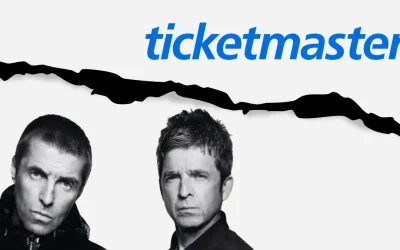Times were when Tiger Woods pulling himself out of a major golf tourney would have wreaked havoc on ticket sales, but times may be a-changin’.
Last month, when Woods bowed out of this year’s U.S. Open due to ongoing trouble with injuries to his left knee and Achilles tendon, many worried that this move would negatively affect ticket sales for the event. And to some extent, it did. Following the golfing great’s announcement a week before the tournament, ticket resale site Stubhub saw a 20 percent drop in sales for its four day U.S. Open passes, down to $405 from $500. In addition, demand for tickets was flat in the weeks leading up to the event, a period during which fan interest usually peaks. U.S. television ratings also took a hit, with the final round of play garnering ratings 26 percent lower than the same round in 2010 (though comparable to 2009’s finals ratings).
However, not all resale outlets saw significant drops in sales for the U.S. Open. Christian Anderson, spokesperson for ticket search engine FanSnap, told TicketNews the company saw no real drop in demand for the event, even observing continued increases in ticket prices in the period following Woods’ announcement.
The same may be happening in the wake of Woods’ withdrawal (citing his left leg injuries) from the British Open — which started today, July 14 — although possibly for different reasons. Up until June’s U.S. Open, sales for the British event had been running just ahead of their pace of eight years ago when Royal St. George’s in Sandwich, England last hosted the tournament. Then, following Northern Ireland’s Rory McIlroy historic victory at the U.S. Open, ticket sales experienced a sort of boom and by early July were running 20 percent higher than the last time Sandwich held the event. These figures include only presales, with walk up business during the tournament sure to improve the final numbers.
“Rory is attracting that kind of following — ticket sales took off over the U.S. Open,” Peter Dawson, CEO of the Royal & Ancient Golf Club of St. Andrews, told The Independent newspaper in the UK. “With Tiger sadly not here, it is having less impact than it otherwise would, given what is happening in British and European golf. I hope a star was born at [the U.S. Open].”
By winning the U.S. Open, the 22 year old McIlroy staked his claim as the youngest Major champion since Tiger Woods in 1997, and he is currently ranked third among the top golfers of the world. But although he is considered one of the favorites to win the tournament, fan excitement may also be growing because he is not the sole native player with a chance to make good on British soil. Also expected to contend at Royal St. George’s are Luke Donald and Lee Westwood, English golfers who are ranked numbers one and two, respectively, in the world. With the top three golfers in the world competing on their home turf, it is easy to see how ticket sales for the Open may be more driven this year by who is playing than by who is not.
Meanwhile, Woods continues his ongoing quest for image rehabilitation, this week announcing a move to Excel Sports Management with long-time manager Mark Steinberg. Steinberg left sports management company IMG in May, followed two weeks later by Woods, who had been represented by IMG since first turning professional in 1996. Some believe that Woods’ move to Excel and its stable of positive-image players such as Derek Jeter is designed to assist in reworking the golfer’s tarnished image as he struggles to get back to winning tournaments.
This week’s announcement included no new information on Woods’ plans for a return to the golf circuit, leaving fans and those in the business wondering if he will have time to return at all this season.



